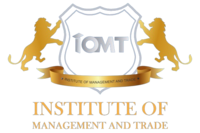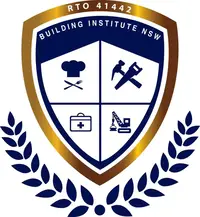
Courses for beginners
There are 3 courses available in Central Coast New South Wales for beginner learners with no prior experience or qualifications.
Certificate III in Engineering - Fabrication Trade
- There are no mandated entry requirements.








Certificate III in Engineering - Mechanical Trade
- There are no mandated entry requirements.




Certificate III in Engineering Fabrication Trade (Boilermaking/Welding)
- There are no mandated entry requirements.





Courses for experienced learners
There are 3 courses available in Central Coast New South Wales for experienced learners with prior experience or qualifications.
Certificate IV in Engineering
- There are no mandated entry requirements.







Diploma of Engineering – Advanced Trade
- There are no mandated entry requirements.



Certificate IV in Engineering (Welding)
- There are no mandated entry requirements.
 TAFE NSW
TAFE NSW
Key questions
How can I become a welder?
To become a welder in Central Coast, you may want to consider completing the Certificate IV in Engineering. This qualification will equip you with the skills and knowledge necessary for a career in this industry.
Are there training providers in Central Coast?
You can train to become a welder by completing a qualification with TAFE Queensland or North Regional TAFE. Find a course provider near you. Once you make an enquiry, a course advisor will get in touch to discuss your study options and course fees.
What study modes are available?
There are several campuses within the Central Coast area that provide welder training. The closest campus is 57km away from the center of Central Coast. You can also study a welder course through online, traineeship learning. Find a course provider that best suits your study needs.
Related occupations
Explore related occupations in the welder sector.
Apprentice Engineer
An Apprentice Engineer trains in creating and maintaining machinery parts, uses various tools, and must follow instructions, work in teams, and be adaptable.
Engineering Tradesperson
An Engineering Tradesperson creates and maintains parts for construction projects, using various tools and machinery while managing multiple projects effectively.
Blacksmith
A Blacksmith shapes metal using heat, creating new pieces or repairing existing ones with tools and machinery, while ensuring safety and detail.
Boilermaker
A Boilermaker fabricates and repairs metal parts using technical drawings, employing skills in welding, bolting, and riveting while ensuring safety.
TIG Welder
A TIG Welder uses gas tungsten arc welding to join metal, often interpreting technical drawings and working in diverse industries like construction.
Metal Worker
A Metal Worker fabricates parts from metals like steel and aluminium, cutting, shaping, assembling, and installing them according to specifications.
Welding Instructor
A Welding Instructor teaches welding techniques, assesses student skills, and provides feedback in vocational settings, requiring strong communication and organisation.
Sheet Metal Worker
A Sheet Metal Worker cuts, shapes, and designs metal components using hand tools or machinery, requiring strong technical skills and attention to detail
Fabricator
A Fabricator constructs and repairs metal parts using various techniques, requiring strong technical skills and adherence to safety guidelines.
Further reading


Most popular manufacturing courses
19th July 2022)
